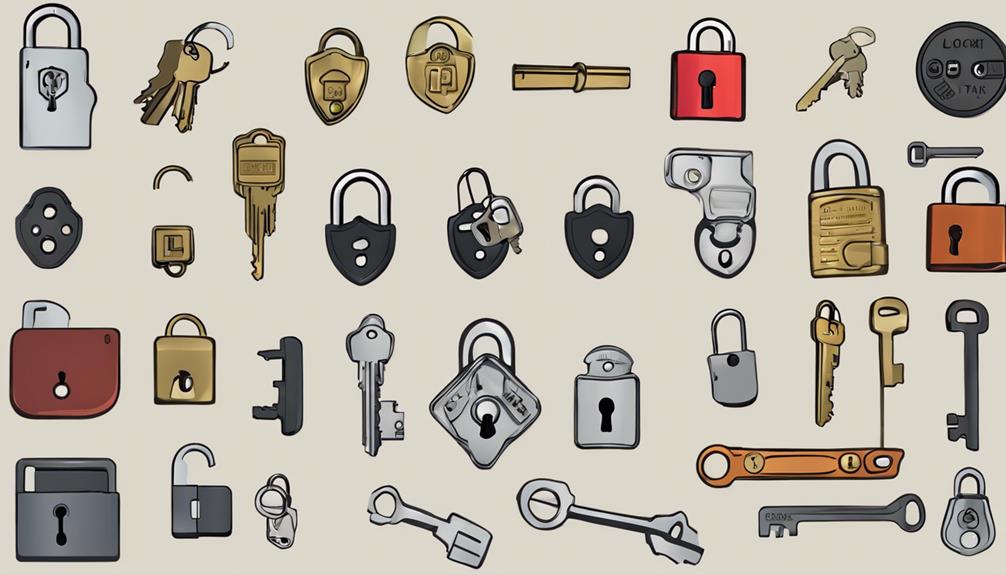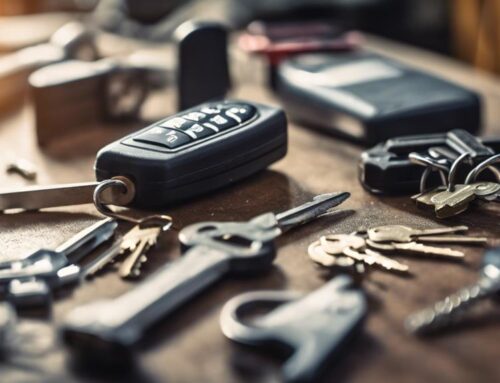Rekeying locks, including smart locks and high-security locks, varies in complexity and requires specific techniques and expertise. Traditional locks are usually rekeyable, offering increased security without replacing the entire lock. Smart locks may have different rekeying methods due to their advanced technology, often involving resetting codes or reprogramming access credentials. High-security locks demand specialized procedures and tools for rekeying to maintain their integrity. Expert locksmiths are vital for intricate mechanisms in advanced security systems, ensuring tailored upgrades for enhanced protection. Understanding the nuances of rekeying different lock types is essential for maximum security measures.
Key Takeaways
- Traditional locks are easily rekeyed.
- Smart locks may not be rekeyable.
- High-security locks require specialized rekeying.
- Expert locksmiths handle advanced security systems.
- Rekeying enhances security without full lock replacement.
Types of Locks That Can Be Rekeyed
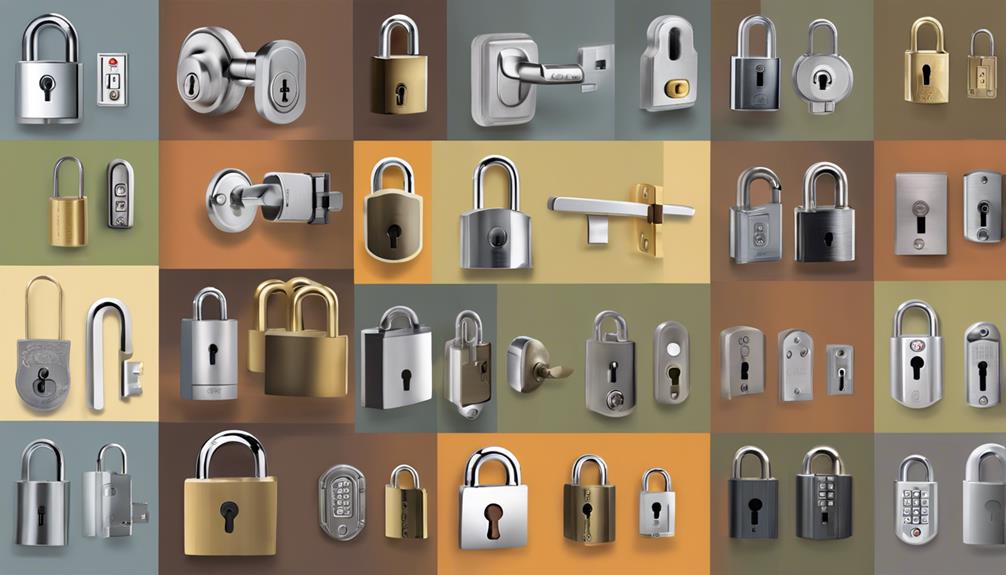
When it comes to rekeying locks, it is important to understand that not all types of locks can be rekeyed. While traditional locks are usually rekeyable, smart locks and high-security locks may not offer the same flexibility. However, the benefits of rekeying traditional locks are numerous. By rekeying, you can enhance security, save money compared to replacing the entire lock, and have peace of mind knowing that old keys will no longer work. The rekeying process involves changing the inner workings of the lock so that a new key will be required to open it. This can be a quick and efficient way to guarantee the security of your home or business without the need for a complete lock replacement. Additionally, some smart locks can be reprogrammed instead of rekeyed, allowing for a different approach to enhancing security Smart Locks: Re-keying vs. Reprogramming Explained.
Rekeying Traditional Locks
To rekey traditional locks, you will need to have the necessary tools and expertise to modify the internal components of the lock cylinder. Rekeying benefits include enhancing security without replacing the entire lock and the ability to change keys quickly. The rekeying process involves disassembling the lock, replacing the pins inside the cylinder, and then reassembling it. By following these steps, you can effectively rekey your traditional lock and boost your security measures while maintaining convenience. If you want to learn more about the advantages of lock rekeying, check out the detailed explanation Understanding Lock Re-Keying and Its Benefits.
Rekeying Smart Locks
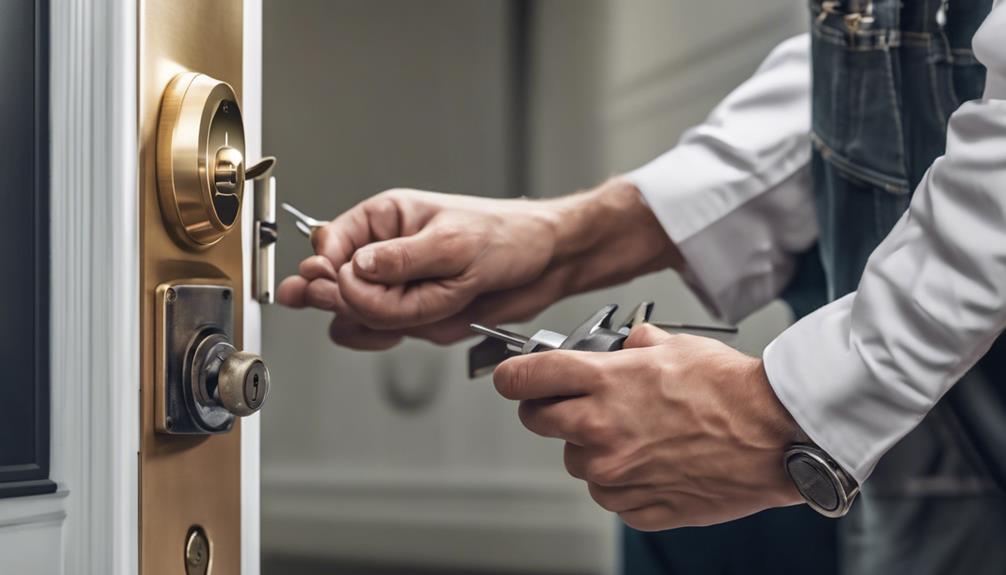
Rekeying smart locks involves a different process compared to traditional locks due to their advanced technology and electronic components. Smart locks offer features like keyless entry, remote access, and integration with smart home systems. To rekey a smart lock, you will typically need to access the lock's settings through a mobile app or a control panel. The rekeying process may involve resetting the lock's codes or reprogramming the access credentials. Some smart locks also allow for temporary access codes, which can be handy for guests or service providers. It's crucial to follow the manufacturer's instructions carefully to guarantee the rekeying process is done correctly and securely, maintaining the integrity of your smart lock system. If you want to learn more about mastering smart locks, check out Mastering Smart Locks: A Guide to Re-Keying Made Easy for detailed insights.
Rekeying High-Security Locks
High-security locks, known for their robust design and advanced features, require specialized expertise when it comes to maintenance and rekeying. When it comes to rekeying high-security locks, the following steps are essential:
- Verify the lock's high security features to understand the complexity.
- Use precise rekeying techniques to verify the security integrity.
- Employ specialized tools designed for high-security lock systems.
- Double-check the pins and tumblers alignment for flawless operation.
- Test the lock thoroughly after rekeying to assure peak functionality.
Expert Locksmiths for Advanced Security Systems
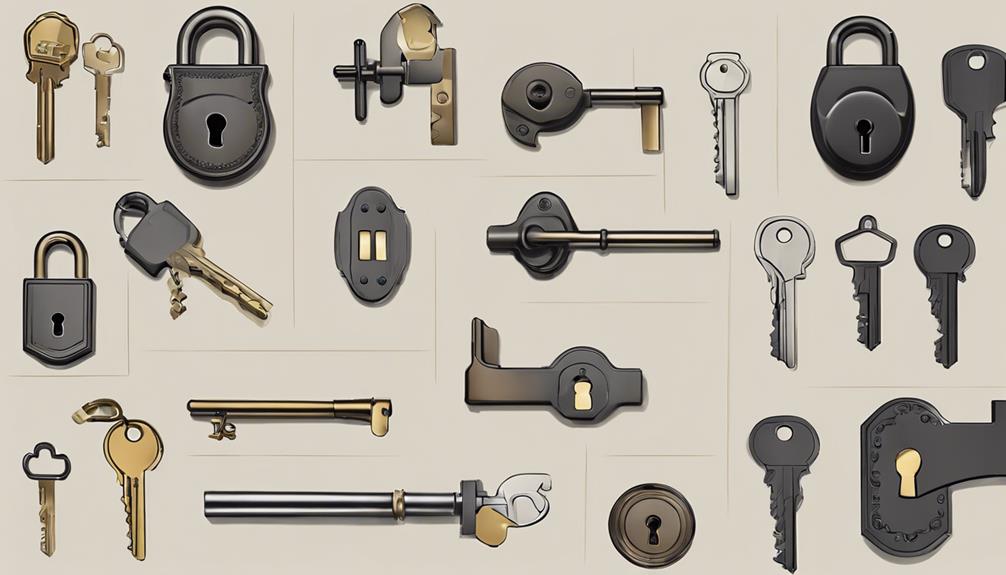
When dealing with advanced security systems, such as high-security locks, it becomes imperative to rely on expert locksmiths who possess the specialized skills and knowledge required to maintain and rekey these intricate mechanisms. Advanced lock technologies demand a locksmith who is not only familiar with traditional lock systems but also well-versed in the complexities of cutting-edge security measures. These professionals can provide security system upgrades that cater to your specific needs, ensuring that your property remains safe and secure. Expert locksmiths understand the nuances of advanced security systems, offering you peace of mind knowing that your locks are in capable hands. So, when it comes to safeguarding your assets with the latest in security technology, entrust the job to those who truly understand the craft. Additionally, these locksmiths can assist in selecting the best high-security locks, such as Medeco or Abloy, for enhanced protection.
Conclusion
To sum up, rekeying can be done on various types of locks, including smart locks and high-security locks. Did you know that over 70% of homeowners choose to rekey their locks as a cost-effective way to enhance their security? Trust in the expertise of locksmiths to tailor the rekeying process to your specific needs, ensuring your property remains safe and secure. Make the smart choice and consider rekeying your locks today for added peace of mind.

